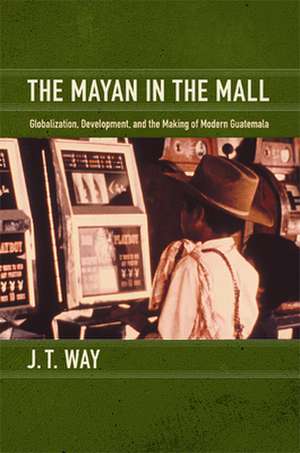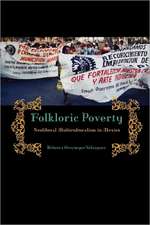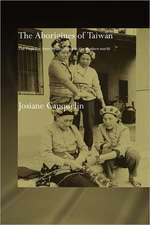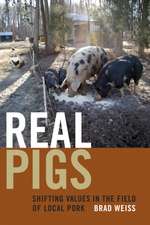The Mayan in the Mall – Globalization, Development, and the Making of Modern Guatemala
Autor J. T. Wayen Limba Engleză Paperback – 15 apr 2012
Preț: 264.43 lei
Nou
Puncte Express: 397
Preț estimativ în valută:
50.60€ • 52.83$ • 41.88£
50.60€ • 52.83$ • 41.88£
Carte tipărită la comandă
Livrare economică 04-18 aprilie
Preluare comenzi: 021 569.72.76
Specificații
ISBN-13: 9780822351313
ISBN-10: 0822351315
Pagini: 328
Ilustrații: 8 photographs, 5 maps
Dimensiuni: 155 x 231 x 21 mm
Greutate: 0.46 kg
Ediția:New.
Editura: MD – Duke University Press
ISBN-10: 0822351315
Pagini: 328
Ilustrații: 8 photographs, 5 maps
Dimensiuni: 155 x 231 x 21 mm
Greutate: 0.46 kg
Ediția:New.
Editura: MD – Duke University Press
Recenzii
Finally, a history of Guatemala City, a place key to national history that most scholars flee from! J. T. Way has unearthed a wealth of material from archival, literary and oral sources. In striking and vibrant detail, Way skilfully traces the history of neighbourhoods and of individuals from the first half of the twentieth century to today and he uses this to open up a remarkable and original discussion of the play of ethnicity and modernity in the making of a cultural texture and urban political economy that uses the Mayan in the absence of Mayas or worse, in the presence of their oppression. The Mayan in the Mall brings to life the citys residents in this society of vendors and simultaneously delivers a devastating and brilliant critique of development. Deborah T. Levenson, co-editor of The Guatemala Reader: History, Culture, PoliticsThe quirky mind of J. T. Way reveals a Guatemala that will enlighten even seasoned hands, one deformed by development in myriad modernist guise, a curse to most of its citizens, the blessing of a venal few. W. George Lovell, Queens University, Canada
Notă biografică
Cuprins
List of Illustrations
Acknowledgments ix
Introduction. Grand Tikal Futura: "Put1. "Like Sturdy Little Animals": Making the Modern Anti-Modern, 1920s¿1944ting the Mayan in the Mall" 1
1. "Like Sturdy Little Animals": Making the Modern Anti-Modern, 1920s¿1944 13
2. Chaos and Rationality: The Dialectic of the Guatemalan Ghetto 41
3. Oficios de su Sexo: Gender, the Informal Economy, and Anticommunist Development 67
4. Making the Immoral Metropolis: Infrastructure, Economics, and War 94
5. Executing Capital: Green Revolution, Genocide, and the Transition to Neoliberalism 124
6. A Society of Vendors: Contradictions and Everyday Life in the Guatemalan Market 152
7. Cuatro Gramos Norte: Fragmentation and Concentration in the Wake of Victory 181
Appendix. A Grass-roots List of Transnationals in Guatemala, circa 1978 210
Notes 217
Glossary 277
Bibliography 279
Index 301
Acknowledgments ix
Introduction. Grand Tikal Futura: "Put1. "Like Sturdy Little Animals": Making the Modern Anti-Modern, 1920s¿1944ting the Mayan in the Mall" 1
1. "Like Sturdy Little Animals": Making the Modern Anti-Modern, 1920s¿1944 13
2. Chaos and Rationality: The Dialectic of the Guatemalan Ghetto 41
3. Oficios de su Sexo: Gender, the Informal Economy, and Anticommunist Development 67
4. Making the Immoral Metropolis: Infrastructure, Economics, and War 94
5. Executing Capital: Green Revolution, Genocide, and the Transition to Neoliberalism 124
6. A Society of Vendors: Contradictions and Everyday Life in the Guatemalan Market 152
7. Cuatro Gramos Norte: Fragmentation and Concentration in the Wake of Victory 181
Appendix. A Grass-roots List of Transnationals in Guatemala, circa 1978 210
Notes 217
Glossary 277
Bibliography 279
Index 301
Descriere
In this book J.T. Way examines the historical development of modern Guatemala and argues that it is far from being an underdeveloped nation. But he shows that the changes that have occurred since the end of the civil war have also widened the gap between rich and poor. Today crime, division of wealth, alienation, fear, and insecurity are the hallmarks of current day Guatemala, and Way questions whether the evolving model of global development imposed on the nation will ever deliver the promise of successful capitalism.












